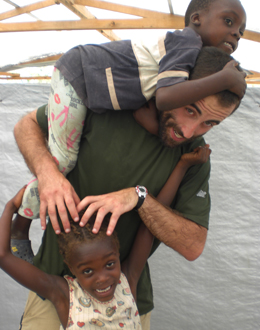Spotlight on Students: Daniel Dworkis
 Have you seen the amazing photography—all created by our own GMS students—displayed in the GMS office? If not, please stop by and enjoy these beautiful art works. One of the photographers is Daniel Dworkis, an MD/PhD student, who is not only passionate about science but balances his life with many activities such as photography, volunteering, etc. He sat down to share with us his perspectives on science, medicine, and the game rock, paper, scissors.
Have you seen the amazing photography—all created by our own GMS students—displayed in the GMS office? If not, please stop by and enjoy these beautiful art works. One of the photographers is Daniel Dworkis, an MD/PhD student, who is not only passionate about science but balances his life with many activities such as photography, volunteering, etc. He sat down to share with us his perspectives on science, medicine, and the game rock, paper, scissors.
Q: So you’ve been doing some traveling recently? Can you tell us about where you’ve been and what you were doing there?
Yes, that’s right. I recently became involved with the Harvard Humanitarian Initiative and spent a month in Haiti working with that organization at the displaced persons camp Kam Lespwa / Klinik Lespwa (meaning camp or clinic of hope, respectively). It was an amazing experience that provided me with a unique opportunity to help people. Applying some of my lab experience in the field, I conducted some public health research, looking at different types of malnutrition present in the camp.
Q: What is one of your strongest memories from this experience?
Working with the children in the camp was amazing, and since I speak Haitian Kreyol, I was able to really interact directly with them. I would walk by a group of kids and they would be so surprised when they realized I actually understood them—my favorite part was trying to teach them the game ‘rock, paper, scissors,’ a game I’ve been playing since I was a kid. They really didn’t buy into the idea of paper beating rock, but that did not stop them from surrounding me and demanding to play every time I went by!
Q: How has this experience changed your perspective?
Being able to bring my research skills to Haiti and apply them in the field really reminded me of why I’m in this program: I worked alongside wonderful doctors and nurses who were trying to address the medical issues they saw, and by bringing my research skills to look at the public-health data we collected in a new way, I was able to expose some previously unrecognized trends and concerns. So I could really see how the PhD and MD parts of my training were working together. It also really solidified my desire to work for at least part of my career internationally, probably in post-disaster or refugee settings.
Q: What program are you enrolled in and why did you choose this particular program?
I am an MD-PhD candidate in the Graduate Program in Molecular Medicine, researching factors affecting the severity of sickle cell anemia. After studying biophysics at Brown I began working at BU in the bioengineering department, and entered the MD-PhD program here intending to work on developing new bio-optic devices for research. However, during my first year of medical school, I went to a series of great talks focused on medicine and research in the setting of poverty both at home and abroad; the speakers posed some very challenging questions, and I realized I really wanted to devote a large part of my career to addressing both the bio-molecular and socio-economic etiologies of disease. Just before starting at BU, I had volunteered as a summer-camp counselor for kids with sickle cell anemia, and had seen first-hand the complex physiological and socio-economic havoc this genetic disorder wreaks. I was fortunate enough to be able to join the Center of Excellence in Sickle Cell Disease under the guidance of Dr. Martin Steinberg in the Program in Molecular Medicine. Currently, I’m researching how genetic variation modifies endothelial processing of inflammation in an effort to identify molecular pathways that might alter the severity of sickle cell disease.
Q: Why BUSM?
The mission of this school is extremely meaningful and congruent with my personal perspective. I am thrilled to work at an institution where the guiding principle is service for the underserved, and I see such a real passion here from the people I meet and work with. I also consider myself to be very fortunate to be in a place like BU that does so much to guide students toward reaching their goals, even when those goals include atypical things like temporarily leaving the laboratory to work in a displaced persons camp!
Q: So when you aren’t in the lab, what other activities are you involved in?
I am a co-leader of the emerging advocacy program here at BUSM. It is a 4-year comprehensive curriculum, from teaching advocacy for patients to changing national policy. As part of this curriculum, I am currently teaching a class with a couple of other students on how legal status effects healthcare. I love the challenge of teaching the class and the opportunity to work with so many talented and motivated individuals. I am also part of the advisory council of Massachusetts Housing and Shelter Alliance (www.MHSA.net), and have learned a tremendous amount from that organization about addressing larger-scale public-health issues. I also teach a kickboxing class, which I learned as a kid from my father (who actually trained with Chuck Norris). In my non-existent free time, I also enjoy include running, yoga, and, of course, photography.
It is clear that whatever Dan may face next, it is certain that he will excel. Beyond that, Dan is also challenging us to set an exceptional standard to care for others and strive for continued improvements and excellence.
By GMS student,
Maggie Wentworth